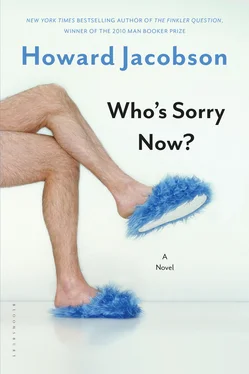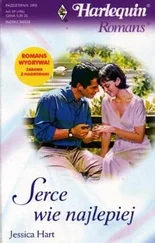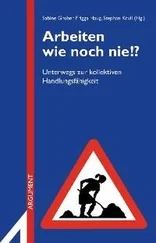‘Maurice, I’d forgotten I had you,’ he said, when the driver wound down his window.
‘You should get out more, Mr Kreitman,’ the driver laughed.
He got Maurice to take him the rounds of his furthest flung shops, Lewisham, Crystal Palace, Penge, swinging back towards Putney via Thornton Heath and Wimbledon. Was this his life? He totted up what he amounted to — so many hundreds of Ander suitcases, so many thousands of Manchester United schoolbags, so many hundreds of thousands of coin-tray purses, still selling though you would have thought the penny-pinching bachelor gent who shuffled his coins on to the tray to inspect them, exactly as an ailing German will inspect his stools, was a thing of the past. Was it time for him, Kreitman, to have a coin-tray purse of his own? She loves me — shuffle, shuffle — she loves me not. She loves me …
Because it gave him something to take his mind off himself he was pleased to walk into a staff problem at his West Norwood branch. An assistant not in the first flush of youth, nor in any sort of flush of presentableness, come to that — only West Norwood, you see — was taking a bag down from a shelf. The bag, unlike the assistant, was hard-edged, highly polished, brittle as a diamond, not cheap. ‘A good choice, madam,’ he overheard the assistant saying, ‘I’ve been thinking of buying that one for myself for weeks.’ He took her aside, though not aside enough, once the sale had fallen through. ‘Peggy,’ he said, ‘I mean this in the nicest way, but ask yourself why it would be a recommendation to a woman let’s say half your age and let’s guess twice your height, a woman with an air (I say no more than that) of having a degree from Oxford and from Cambridge and a house in every road in Dulwich, that the handbag on which her attention happens to have alighted is the very handbag chosen above all others for its fashionableness and elegance by you ?’
It came out ruder than he meant it to, but what help was there? The shop fell quiet. The grey-haired assistant blinked three times, lowered her head and disappeared into the stockroom. Kreitman followed, inhaling leather. He loved a stockroom. ‘I’m sorry,’ he said. ‘I could have put that better.’
‘You could have put it to me in private , Mr Kreitman,’ she corrected him, sniffing.
Kreitman took her point and apologised again. He had broken one of Francis Place’s three golden recollections to himself, and played the tyrant. And for no reason other than that he was love-sick and idle. In the days when he counted off his women he was considerate to his staff. Was being in love with one woman making a pig of him? He wondered if Peggy was going to hand in her notice and then sue him for unfair dismissal. Staff were no picnic any more. Hire a person to stuff travel bags with newspapers and you have taken on a responsibility as onerous as marriage. More. Easier to shed a wife than a sales assistant.
‘As you were,’ he saluted to the shop in general, as he left. But none of the remaining staff looked up from what they were doing or otherwise showed they thought his joke particularly funny.
‘Right, Maurice,’ he said, folding himself back into the Smart, ‘let’s see what trouble I can cause in Mitcham.’
He was better off indoors with his unrequited gypsy music and his shove-halfpenny board. Waiting for the call from Chas.
He couldn’t stop thinking about her. She had turned golden in his imagination, come in out of the sun-bled fields and taken possession of the great glittering indoors, made lustrous by artificial light. Once upon a time he had not liked the sameness of her palette, her corn-stook hair, yellow to her shoulders, framing dully her corn-stook complexion; now the homogeneity of her colouring seemed to him the very model of beauty, her yellow become bronze, its evenness of shading stirringly at odds with the unruliness of her character. When he heard her voice he tried to picture what she was wearing, even though he couldn’t stomach a single item in her wardrobe. When his phone rang he hoped to God it was her and was unable to prevent his own voice dropping when it turned out to be someone else. ‘Come on, come on, get off the line,’ he muttered into his teeth, rocking on the balls of his feet, aflame with impatience, even though the caller had once whispered up all the devils of hell for his entertainment. But there you are, they were the wrong devils, not a one of them Chas in her knitted cucumber top and spinnaker skirt, down on her lavender-gathering knees on a croquet lawn, confusing the categories, mixing up his head.
He jumped when he heard his mail delivered, or the bell ring, or the door rattle. When he looked out of his window he thought he saw her in the street, reading the shop numbers, looking up for a sight of him, smiling one of those blind person’s smiles of hers — fantastical because she didn’t have an inkling where his flat was, but that didn’t stop him imagining her coming up the stairs, knocking on his door, seeing how he was living and feeling sorry for him.
‘You’ve reduced yourself to this for me?’
‘For you, Charlie.’
And then one of them running into the other’s arms.
No, not one of them, him . Running into hers.
Jelly. He’d turned to jelly, grown passive, become the victim of events. He never thought of going to her, always of her coming to him. Never of his kissing her, always of her kissing him. He imagined being touched by her — her hands on him, not his on her — cudgelling his brains to recall how his skin felt the one time she had touched him. But too much had happened since then, four children had been born, innumerable other touchings had taken place, and he’d been too drunk, and she’d been too drunk, and there’d been more bravado than skin in it, anyway, and more tease than touch. And more irony than he’d had the wit to register.
Ironic women had always been his weakness. He had fallen for Hazel because she’d been sardonic about herself. Of his current crop of lapsed lovers, Bernadette had been his favourite because she put up ironic buildings — libraries too dark to read a book in, old people’s homes which were death traps even for the young and virile — and because she looked to him to confirm her bleak view of existence. Chas’s irony, though, was different. Something to do with protectiveness. She’d mocked Charlie protectively for however many years. Become a sort of mother to him and assumed a sort of care. Ironically sort of . My baby, my poor weak baby. With hindsight, Kreitman now believed there might all along have been a touch of that in her tone to him too. Was it something to do with her brand of sex? The satiric half-accidental handjob, after which she was liberated to show pity? Had she been mothering him ironically for twenty years without his ever noticing? And did she therefore feel motherly to that nonentity Nyman as well? Was she nursing Nyman in a leaded-windowed bedroom with a view of the Thames in Richmond right this minute, fumbling in his pants and rocking him in her arms, even as Kreitman uncorked his third bottle of Shiraz and ripped open his second packet of malted-milk biscuits for the night?
Do I know anything, Kreitman wondered, of what has or hasn’t happened?
After all, he needed to talk to his mother.
She had moved north, when she became Mrs Bellwood, to the quiet of Rickmansworth, then further north again, nudging at the Chilterns, after Norbert had his stroke. She greeted Kreitman in her garden, a cigarette in her hand. He loved it that his mother smoked. It made her raffish in his eyes.
‘I’m dead-heading the roses,’ she said.
‘With a cigarette?’
She showed him the secateurs sticking out of her apron pocket. Secateurs he cared for less than cigarettes, then remembered he’d seen Chas wielding them in Richmond and wondered if maybe they could be rendered raffish, by association, too.
Читать дальше












